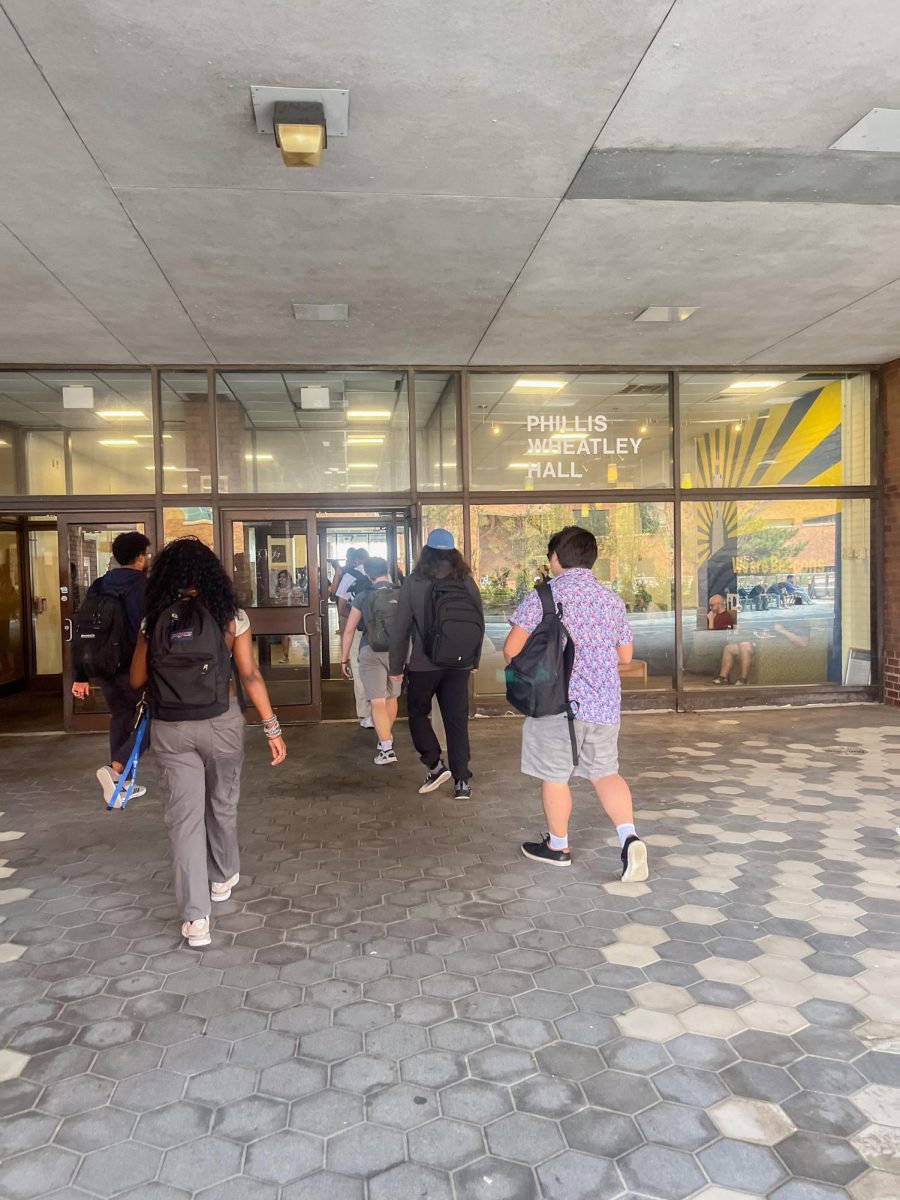
As a student here at UMass Boston, I have had my fair share of classes located in Phillis Wheatley Hall. The Wheatley building is notorious on campus, especially for its labyrinth-esque hallways. Ask any student or faculty member what they think of Wheatley Hall, and you’re sure to get a passionate spiel on their detest for the building.
When you think about all the things wrong with Wheatley Hall, the mysterious flakes falling from the ceilings typically come to mind first—but something else hides in plain sight; the name of the building is incorrect.
Last year, in my Experiencing Boston class, we studied the namesake of Wheatley Hall: the poet Phillis Wheatley Peters. As learned in class, Building 010 at the UMass Boston campus was renamed “Phillis Wheatley Hall” in dedication to Wheatley Peters on Feb. 1, 1985. Phillis Wheatley Peters was the first Black woman poet to have a published book of poetry and is an important figure to the city of Boston. Born in West Africa, Wheatley Peters was kidnapped and enslaved in 1761 at the age of seven or eight. She was sold to John and Susanna Wheatley, a prominent family in Boston at the time. She was taught to read and write and in 1773 traveled to London to publish her book, “Poems on Various Subjects, Religious and Moral.“
Phillis Wheatley Peters’ real name remains unknown, as enslaved people had their African heritage ripped away and new names forced upon them. “Phillis” comes from the name of the ship she was stolen on, and the last name “Wheatley” from her enslavers. After her marriage to a free Black man named John Peters, she changed her last name to Peters.
As you probably noticed, I haven’t been referring to the poet by just the last name “Wheatley.” In recent years, English scholars have taken to referring to her as “Wheatley Peters,” adding on her married name. While there is no evidence Wheatley Peters stated she did not want to be referred to by the Wheatley name, it is clear she chose the name “Peters” after her marriage, as shown by her signature in many letters. The riddance of the Wheatley name could have been a sign of liberation for the poet, which should not be ignored. Most scholars have not replaced the Wheatley name fully, as that is the name she published under. It is also important to recognize the history behind the name that was forced upon her so people don’t ignore her experience while enslaved.
As scholars have updated their language when referring to the poet, UMass Boston needs to do the same and correct the building’s dedication.
Despite her relevance to campus, the majority of students don’t know anything about her. I asked my friends if they knew who Phillis Wheatley Peters was, and one replied, “Is that the guy who made the Wheatley building?” I personally didn’t know a thing about Wheatley Peters when starting at UMass Boston, and probably never would have if not for my English professor’s choice to include her poetry in our curriculum.
It seems strange to me that the vast majority of our student body walks around referring to the building as “Wheatley Hall” without knowing the context behind the name. Simply saying the name “Wheatley” acknowledges Wheatley Peters’ captors instead of herself.
There will never be a real “correct” way to refer to Phillis Wheatley Peters, as her African name is forgotten, but by using this name completely void of her choice—especially with the lack of knowledge students have about her—the university’s dedication of the building does nothing to honor her.
This is not the first time Wheatley Peters’ name has been disrespected. In Thomas Jefferson’s “Notes on the State of Virginia,” he writes that Wheatley Peters could not have possessed the genius to have written her book of poetry, as she is a Black woman. In his writing, he spells her name “Phyllis Whately.” This spelling error stands out as a clear insult. While he could take the time to undermine the poet through racist ideology, he could not take the time to learn her name.
In my opinion, the misnomer of Phillis Wheatley Peters on our campus is a disrespect on par with that of Thomas Jefferson. While we walk her halls every day, the university has not taken the time to educate its students on such a brilliant Boston figure, nor do they seem to have any respect for her name.
The Wheatley building isn’t the only place I’ve seen lacking proper recognition for Wheatley Peters. A couple of weeks ago, I visited England to see my family, and while passing through London I decided to take a detour to the Aldgate area. A few minutes from the underground station, there is a plaque in honor of Phillis Wheatley Peters as a part of London’s Black History Walks. When I found her plaque, I was saddened to see it was directly blocked by an umbrella for outdoor seating at a nearby hotel.
I made somewhat of a scene on the side of the road, looking like a cliché, crazy American tourist as I used all my strength to move the heavy umbrella. As people walked by, they read the now-uncovered plaque, and I got to chat with passersby about Wheatley Peters.
I see UMass Boston’s current dedication of the Wheatley Building just like that umbrella, casting a shadow over an important legacy, preventing its students from engaging further with Boston’s history.
Sure, the Wheatley building’s outdated name may not be the university’s most urgent issue, but that doesn’t mean it’s not important. For a university that markets itself as “For the Times,” its actions to respect and uphold the Black community come off as merely performative. In order to properly honor Phillis Wheatley Peters’ legacy, the university must correct the building’s name in respect of Wheatley Peters’ choice in a world where so much was chosen for her.





















































